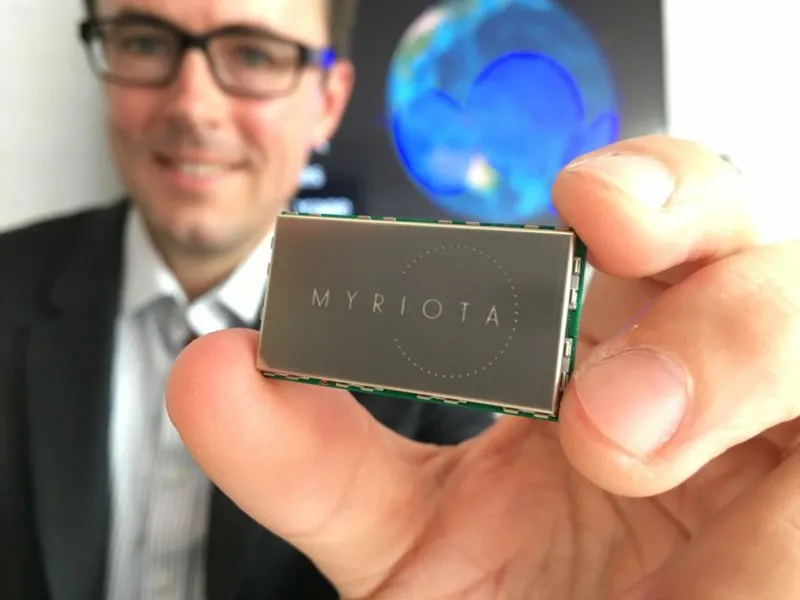
Boeing HorizonX targets Aussie nano-satellite company with first investment outside US
Mar 26, 2018

Boeing HorizonX has made a strategic move by investing in an Australian nano-satellite company, marking its first investment outside the United States. This initiative aims to enhance Boeing's capabilities in the rapidly growing small satellite market and reflects the company's commitment to innovative space technologies. The partnership is expected to leverage Australia’s burgeoning space sector and its expertise in satellite development. By collaborating with local companies, Boeing HorizonX seeks to foster advancements in satellite applications, supporting both commercial and governmental missions while expanding its global footprint in the aerospace industry.
Boeing HorizonX has made headlines by targeting a pioneering Australian nano-satellite company, marking its first investment outside the United States. This strategic move not only highlights Boeing’s commitment to expanding its global footprint but also emphasizes the growing significance of the small satellite market. With the increasing demand for satellite services and technology, Boeing HorizonX’s investment is poised to nurture innovation and drive advancements in the aerospace and defense sectors.
The Significance of Nano-Satellites
Nano-satellites, typically weighing between 1 kg and 10 kg, have emerged as vital assets in the modern communication landscape. Their compact size, cost-effectiveness, and versatility make them ideal for a variety of applications, from earth observation to telecommunications.
Key benefits of nano-satellites include:
| Benefit | Description |
|---|---|
| Cost-Effective | Lower launch costs compared to traditional satellites. |
| Rapid Deployment | Faster development and launch timelines. |
| Scalability | Ability to deploy multiple satellites in a constellation. |
| Technological Advancements | Utilization of modern technology for enhanced performance. |
Boeing HorizonX’s Strategic Investment
The investment by Boeing HorizonX in the Australian nano-satellite company signifies a pivotal step in the global aerospace market. This venture is expected to foster collaboration between Boeing and the Australian technology sector, paving the way for innovative solutions that can meet various global challenges.
Moreover, this move aligns with Boeing HorizonX’s vision of investing in technologies that have the potential to transform the aerospace industry. By focusing on nano-satellites, Boeing is tapping into a rapidly growing market that is expected to witness significant expansion in the coming years.
Market Potential and Growth Opportunities
According to recent market research, the global nano-satellite market is projected to grow significantly, driven by increasing demand for satellite-based services, advancements in technology, and the need for low-cost solutions.
The factors contributing to the growth of the nano-satellite market include:
- Rising Demand: The demand for data from earth observation satellites is increasing, driven by sectors such as agriculture, forestry, and environmental monitoring.
- Technological Innovations: Ongoing advancements in miniaturization and satellite technology are enabling new applications and capabilities.
- Cost Efficiency: Companies and governments are increasingly seeking cost-effective solutions for satellite deployment and operation.
How Boeing HorizonX is Shaping the Future
Boeing HorizonX’s investment strategy is centered around fostering innovation and supporting emerging technologies. By investing in Australian nano-satellite capabilities, Boeing is not only enhancing its portfolio but also contributing to the global aerospace ecosystem.
This investment also reflects a broader trend in the aerospace industry, where traditional companies are increasingly looking to collaborate with startups and innovative firms to stay competitive. The partnership between Boeing and the Australian nano-satellite company is expected to yield various synergies, including:
- Shared Expertise: Combining Boeing's aerospace experience with the innovative capabilities of the nano-satellite company.
- Joint Development Projects: Collaborating on research and development initiatives that push the boundaries of satellite technology.
- Market Expansion: Leveraging Boeing's global reach to facilitate the growth of the Australian company in international markets.
Conclusion
The decision by Boeing HorizonX to invest in an Australian nano-satellite company marks a significant milestone in its global strategy. This investment not only underscores the potential of nano-satellite technology but also highlights the importance of collaboration in driving innovation within the aerospace sector.
As the demand for satellite services continues to grow, partnerships like this will be crucial in shaping the future of space technology. With Boeing HorizonX leading the charge, we can expect to see exciting developments that will redefine the capabilities of nano-satellites and their applications in various industries.
In summary, Boeing HorizonX's first investment outside the U.S. in the Australian nano-satellite sector is a bold move that signifies a commitment to innovation and growth in the global aerospace landscape.
Related Articles

Explore Thailand: The Best Islands to Visit for Paradise, Adventure, and Relaxation

The Ultimate Guide to the Best Islands in Thailand for Your Next Getaway

Do babies need passports? How to get a passport for a newborn

How to get a U.S. passport fast: here’s how to expedite the process

What is Mobile Passport Control: 5 reasons why you should use it

SENTRI vs. Global Entry: A detailed guide

Do you need a passport to go to the Bahamas? Let’s find out

Do you need a passport to go to Mexico? A detailed guide

Do you need a passport to go to Canada? We got the answer

Do You Need a Passport for a Cruise: An Essential Travel Guide

Booster Seat Requirements: All the Rules to Follow in Your Rental Car

What Are the World’s Most Powerful Passports, and How Does Yours Rank?

How to Take a Passport Photo at Home: A Helpful Guide

You've got to have heart! Southwest's new livery

Your opinion: Should water be free on low cost carriers?

Young women bolder than guys as solo travellers
